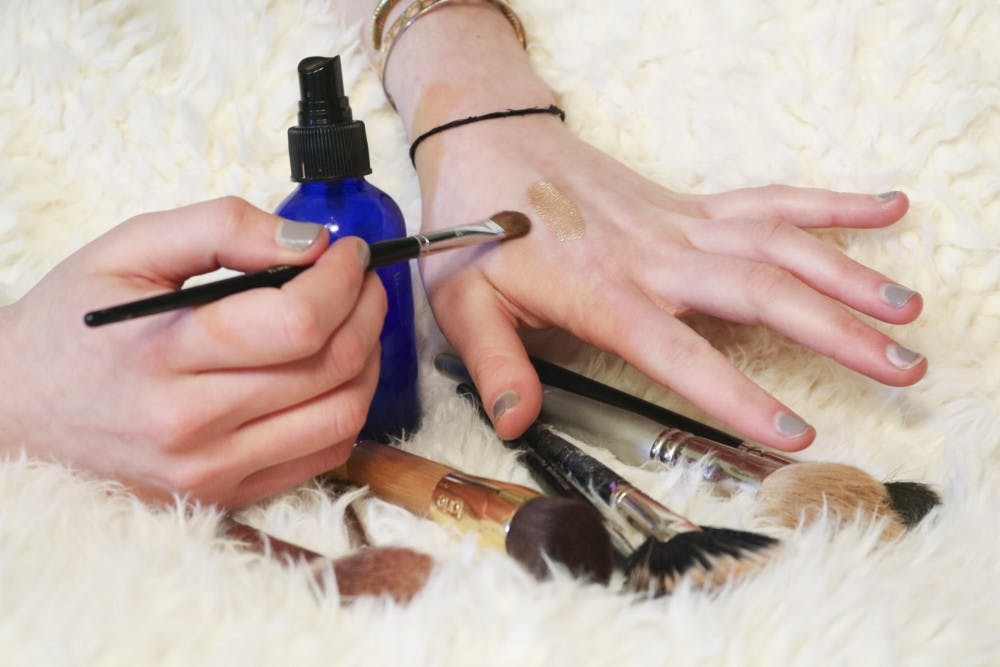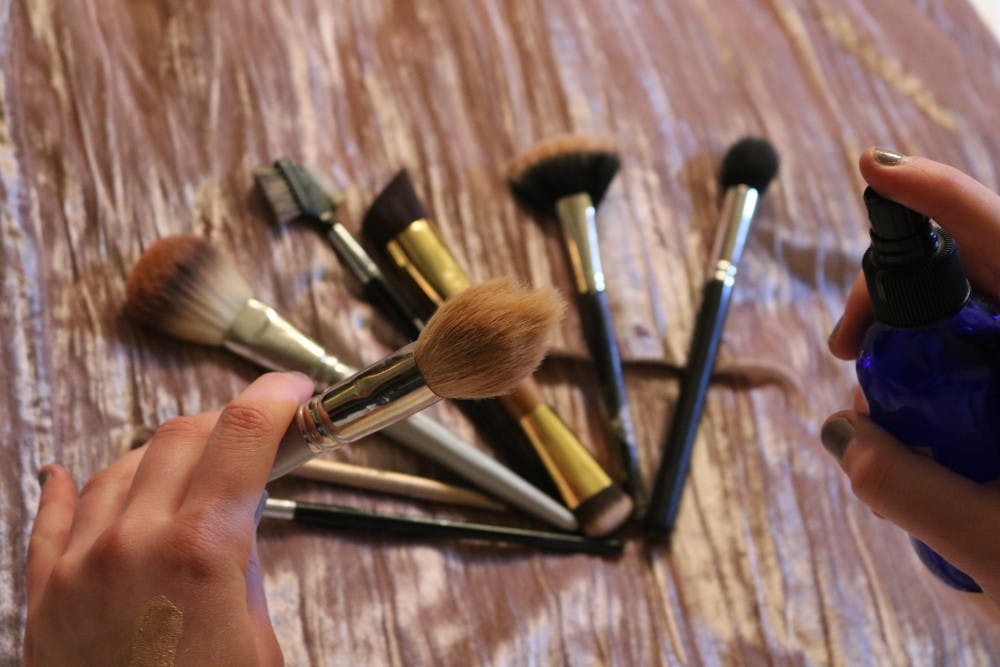Everyone knows that we should clean our makeup and brushes, but how often do people actually do it? We get it—we rarely think about our makeup products and utensils until we're frantically smearing it on ourselves before a big night out. But, washing your brushes and disinfecting your makeup is actually extremely beneficial: it can reduce the risk of acne (an obvious win) as well as prevent the spread of bacteria and germs that can cause things like pink eye and even herpes. Here is the low down on how often you actually need to clean your makeup and brushes and how to do it easily and affordably.

Cleaning your brushes
Many high end makeup brands sell brush cleanser for absurd amounts, but there is no need to buy this product, because armed with some baby shampoo you can have your very own. In order to clean your brushes, take a small amount of baby shampoo in the palm of your hand and swirl your brushes in your palm and under water until they are clean. You can check this cleanliness by sweeping them across a paper towel until they leave no colored trace.
Cleaning your makeup
As with washing your brushes, this is extremely easy. For compacted powders, take undiluted alcohol (91%) and pour into a small spray bottle. Spritz your compacts with the alcohol, making sure that the entire compact is covered with alcohol. This will dry fairly quickly and your powders will be disinfected!
For lipstick, place it uncovered in the freezer for 24 hours in order to kill any bacteria that may be in the tube. This will especially be helpful during flu season—no one wants to keep reinfecting themselves with the same germs.
Throwing Your Makeup Away
Ah, the age old question of when we actually need to throw away our makeup. Even if you buy makeup at the drugstore, it's expensive—it can be painful to throw away that eyeliner or compact that is only halfway used. That being said, here is the timeline for when you should ditch the eyeshadow that you bought for that one Halloween costume.
3 months: Mascara, face masks
6 months to 1 year: Concealer, liquid foundation, liquid liner
1 to 1.5 years: lipgloss, cream shadow, eyebrow gel
2 years: power foundation, eyeshadow and blush, lip and eye pencils, lipstick, nail polish
Although you may not want to part with your favorite lipstick, think about how many germs, dirt, and other gross things are in there! Luckily, if you care for your makeup and brushes by cleaning them regularly it will also help the longevity of your makeup, so following this guide delays the impending farewell.

